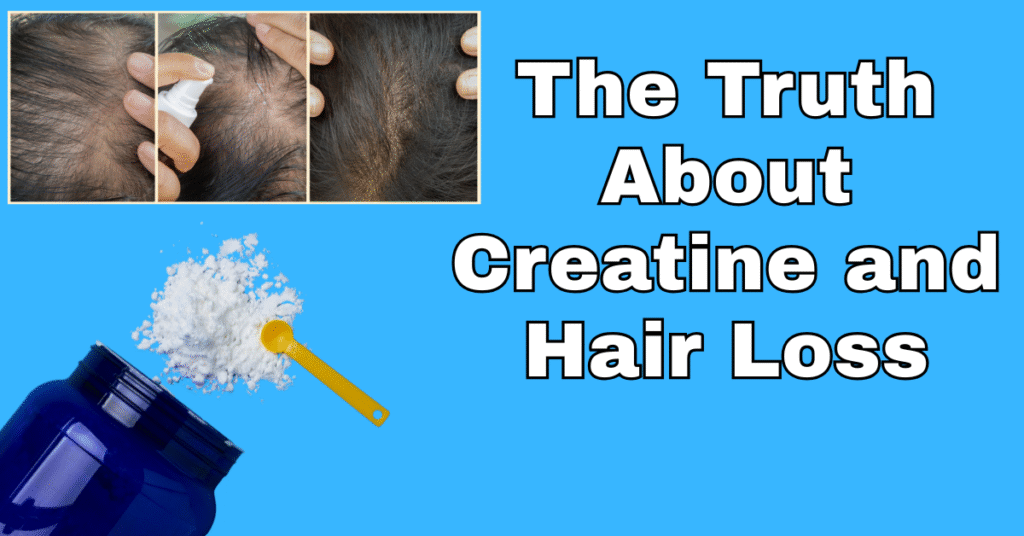The Truth About Creatine and Hair Loss explores whether the widely used fitness supplement creatine can contribute to hair thinning, bald spots, or accelerated hair loss. Athletes, bodybuilders, and fitness enthusiasts often use creatine to boost strength, endurance, and muscle growth. Yet, concerns about hair loss have created confusion. This topic is particularly relevant for men and women with a genetic predisposition to androgenetic alopecia, as elevated DHT levels—known to affect the hair follicle and cause follicle shrinkage—might be influenced by supplementation. Understanding the science behind creatine, hair health, and potential interventions like hair restoration can help users make informed choices. By monitoring hormone levels, adjusting dosages, maintaining proper nutrition, and consulting a hair transplant surgeon, individuals can minimize risks. Whether you are considering supplements or already experiencing thinning, knowing the truth about creatine and hair loss offers practical strategies, peace of mind, and guidance toward hair regrowth and long-term hair health.
What Is Creatine?
Creatine is a naturally occurring compound found in foods like red meat and fish, and it is also produced in the body from amino acids. It plays a vital role in producing adenosine triphosphate (ATP), the energy currency for muscles. By increasing ATP availability, creatine allows muscles to perform at higher intensity for longer, making it essential for strength training and high-intensity workouts.
Creatine is usually consumed as creatine monohydrate, the most researched and effective form. While its benefits for muscle growth and performance are well-known, concerns about a possible link to hair loss remain among some users.
Understanding Hair Loss
To grasp the potential connection, it is important to understand hair loss mechanisms. The most common type of hair loss is androgenetic alopecia, also called male or female pattern baldness. This condition is influenced by genetics and hormones, particularly dihydrotestosterone (DHT).
DHT binds to hair follicles, shrinking them over time. Miniaturized follicles produce thinner hair, eventually leading to bald spots. Genetic sensitivity to DHT determines how quickly and extensively hair loss occurs.
Other causes include stress, nutrient deficiencies, thyroid issues, autoimmune conditions, medications, and lifestyle factors such as poor diet, smoking, or excessive use of heat and chemicals on hair.
The Creatine and Hair Loss Connection
Concerns about creatine and hair loss are mainly based on a 2009 study involving rugby players. Participants taking creatine supplements for three weeks showed a significant rise in DHT levels, while testosterone remained unchanged.
Since DHT drives androgenetic alopecia, some speculated creatine could accelerate hair loss in those genetically predisposed.
Key Points from the Study
- DHT Increase: A 56% rise in DHT during the loading phase and 40% during maintenance.
- Short-Term: Only three weeks, too brief to observe long-term hair loss.
- Small Sample: Only 20 participants, limiting broader conclusions.
What It Means
While the study hints at a connection, there’s no definitive proof that creatine directly causes hair loss. Elevated DHT might accelerate thinning in predisposed individuals, but creatine itself is not a direct cause.
Myths vs. Facts
Myth 1: Creatine causes hair loss in everyone.
Fact: Only individuals genetically predisposed to androgenetic alopecia may be affected. Others are unlikely to lose hair due to creatine.
Myth 2: Creatine damages hair follicles directly.
Fact: Creatine doesn’t harm follicles. Concerns are indirect: DHT may impact sensitive follicles.
Myth 3: Stopping creatine reverses hair loss.
Fact: Once follicles miniaturize, full reversal is unlikely. However, discontinuing creatine may prevent further DHT-related acceleration.
Managing Hair Health While Taking Creatine
If you want to benefit from creatine while protecting your hair, consider these steps:
- Monitor DHT Levels: Consulting a dermatologist or hair transplant surgeon helps track hormone levels.
- Use Creatine Moderately: A maintenance dose of 3–5 grams per day may reduce hormone fluctuations. Skipping the loading phase can help.
- Maintain Hair-Friendly Habits: Eat a nutrient-rich diet, manage stress, and ensure proper scalp care. Adequate protein, vitamins (biotin, zinc, vitamin D), and minerals strengthen hair follicles.
- Consider Hair Loss Treatments: Early interventions like minoxidil, finasteride, or natural remedies improve scalp health. Hair transplant surgeries, including follicular unit extraction (FUE), follicular unit transplantation (FUT), MHI & DHI methods, or other types of hair transplant procedures, may be options for long-term restoration. Consulting transplant surgeons helps set realistic hair transplant expectations for new hair growth in the donor area and recipient area.
Creatine Benefits Outweigh Risks for Most People
Creatine remains safe and effective for healthy adults. Benefits include:
- Increased muscle strength and endurance
- Lean muscle gains
- Faster recovery from intense workouts
- Safe use at recommended doses
For those without a strong genetic risk for hair loss, the performance benefits outweigh potential risks.
Special Considerations
Women and Hair Loss: Women naturally have lower DHT levels. While creatine may slightly raise DHT, impact on hair loss is usually minimal. Those with a family history of androgenetic alopecia should stay cautious.
Preexisting Hair Loss: Individuals already experiencing thinning should consult professionals. Combining creatine use with treatment for hair loss, including hair regrowth therapies or hair transplant procedures, can provide safer outcomes.
Alternative Approaches to Enhance Performance
- Lower doses: Small daily doses may minimize DHT impact.
- Different creatine types: Buffered or creatine hydrochloride may offer benefits with less hormonal effect.
- Other supplements: Beta-alanine, BCAAs, and protein powders can boost performance without significantly affecting DHT.
Conclusion
The link between creatine and hair loss is inconclusive. A minor rise in DHT may accelerate hair loss in genetically susceptible individuals, but creatine is not a direct cause. For most, it remains a safe, effective performance enhancer.
Monitoring hormones, maintaining a healthy lifestyle, and consulting hair transplant surgeons or specialists ensures informed decisions. With proper precautions, you can enjoy creatine’s fitness benefits while supporting hair regrowth, maintaining healthy hair follicles, and exploring hair restoration options like FUE, FUT, and MHI & DHI methods for long-term results.
















